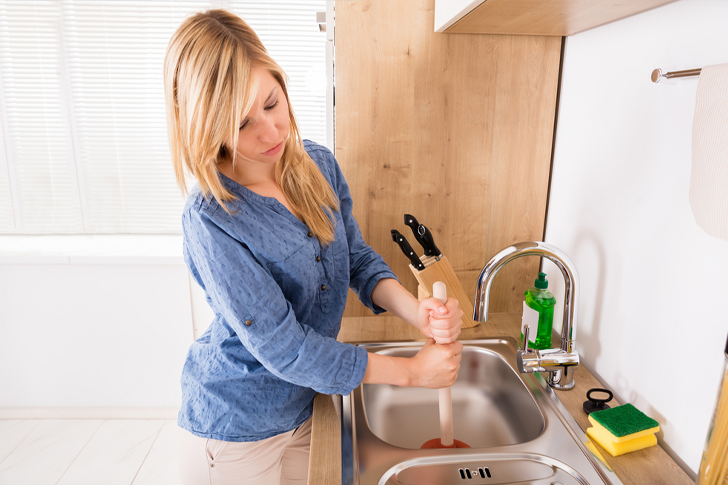Alternative Methods for Drain Cleaning
Drain cleaning is an essential maintenance task that ensures water flows smoothly through your pipes, preventing backups and possible damage to your plumbing system. Over time, drains can become clogged with debris such as hair, soap scum, grease, and food particles, leading to slow drainage and even complete blockages. While many people reach for chemical drain cleaners to address these issues, these solutions are not always the best choice for your plumbing or the environment. In this article, we explore alternative methods for drain cleaning that are effective and eco-friendly.

Understanding the Impact of Chemical Cleaners
Conventional chemical drain cleaners are popular due to their apparent convenience and perceived immediacy in unclogging drains. However, these chemicals can be harsh and may cause long-term damage to your pipes. According to the U.S. Environmental Protection Agency, many chemical drain cleaners contain substances like sulfuric acid or sodium hydroxide, which can corrode metal pipes and degrade PVC. Over time, the frequent use of these chemicals can lead to weakened pipes and costly repairs.
Physical Methods for Drain Cleaning
One of the safest and most effective ways to clean your drains is to use physical methods. For minor clogs, a good old-fashioned plunger can often do the trick. The plunger creates a pressure seal around the drain, and the force exerted can dislodge most blockages. For more stubborn clogs, a drain snake or auger is an excellent tool. These devices reach deep into pipes, physically removing blockages. According to a survey by the National Association of Plumbing Professionals, over 78% of plumbing issues, including clogs, can be resolved with mechanical tools like plungers and snakes without the need for harsh chemicals.
Enzymatic Drain Cleaners
Enzymatic drain cleaners present a biologically-based alternative to chemical cleaners. These products use natural enzymes and bacteria to break down organic matter in the pipes. They are non-corrosive and safe for all types of plumbing, including septic systems. While enzymatic cleaners may take longer to work compared to chemical solutions, they provide a much gentler and environmentally friendly option. A statistic from the Consumer Plumbing Awareness Survey indicated that enzymatic cleaners successfully resolve slow drains in 85% of tested homes, with no damage to the piping system.
Hot Water Flushes and Regular Maintenance
A simple yet often overlooked method for keeping drains clear is regular flushing with hot water. Merely running hot water down your drains once a week can help dissolve fatty acids and prevent the buildup of grease and soap residues that typically cause blockages. A 15-minute hot water flush can maintain the cleanliness and free-flowing nature of your drains, reducing the need for more intensive cleaning methods.
Deterrence through Proper Use
Prevention is always better than cure when it comes to drain maintenance. Being mindful of what goes down your drains can significantly reduce the likelihood of clogs. For instance, avoid pouring oils, fats, and coffee grounds down the kitchen sink, and use drain covers to catch hair in the bathroom. The EPA notes that proper disposal of kitchen waste and regular cleaning could reduce domestic drain blockages by up to 75%.
Eco-friendly Cleaners: Baking Soda and Vinegar
A popular home remedy for drain maintenance involves the use of baking soda and vinegar. This mixture causes a chemical reaction that produces carbon dioxide, which helps dislodge blockages in your drains. To use this method, pour a cup of baking soda followed by a cup of vinegar down the drain, cover with a plug for 30 minutes, and then flush with boiling water. This method, while simple, is cited in DIY plumbing guides as being effective for minor clogs and is completely safe for your plumbing.
The Role of Professional Drain Cleaning Services
While many of these home remedies and alternative methods can be effective for minor clogs and maintenance, more significant or persistent issues may require professional intervention. Professional plumbers have access to powerful tools and advanced techniques, such as hydro-jetting and video pipe inspection, which are generally more effective and quicker at removing tough clogs. Investing in professional drain cleaning services can also help identify potential issues before they become major problems, potentially saving homeowners significant amounts of money in plumbing repairs. Statistics show that regular professional maintenance can reduce the likelihood of plumbing emergencies by up to 90%.
In conclusion, while chemical drain cleaners offer a quick fix, their potential harm to both pipes and the environment makes them an unsuitable choice for regular use. By adopting more sustainable practices and using alternative cleaning methods, homeowners can maintain their plumbing efficiently and safely, prolonging the lifespan of their systems and promoting a healthier environment.







Recent Comments